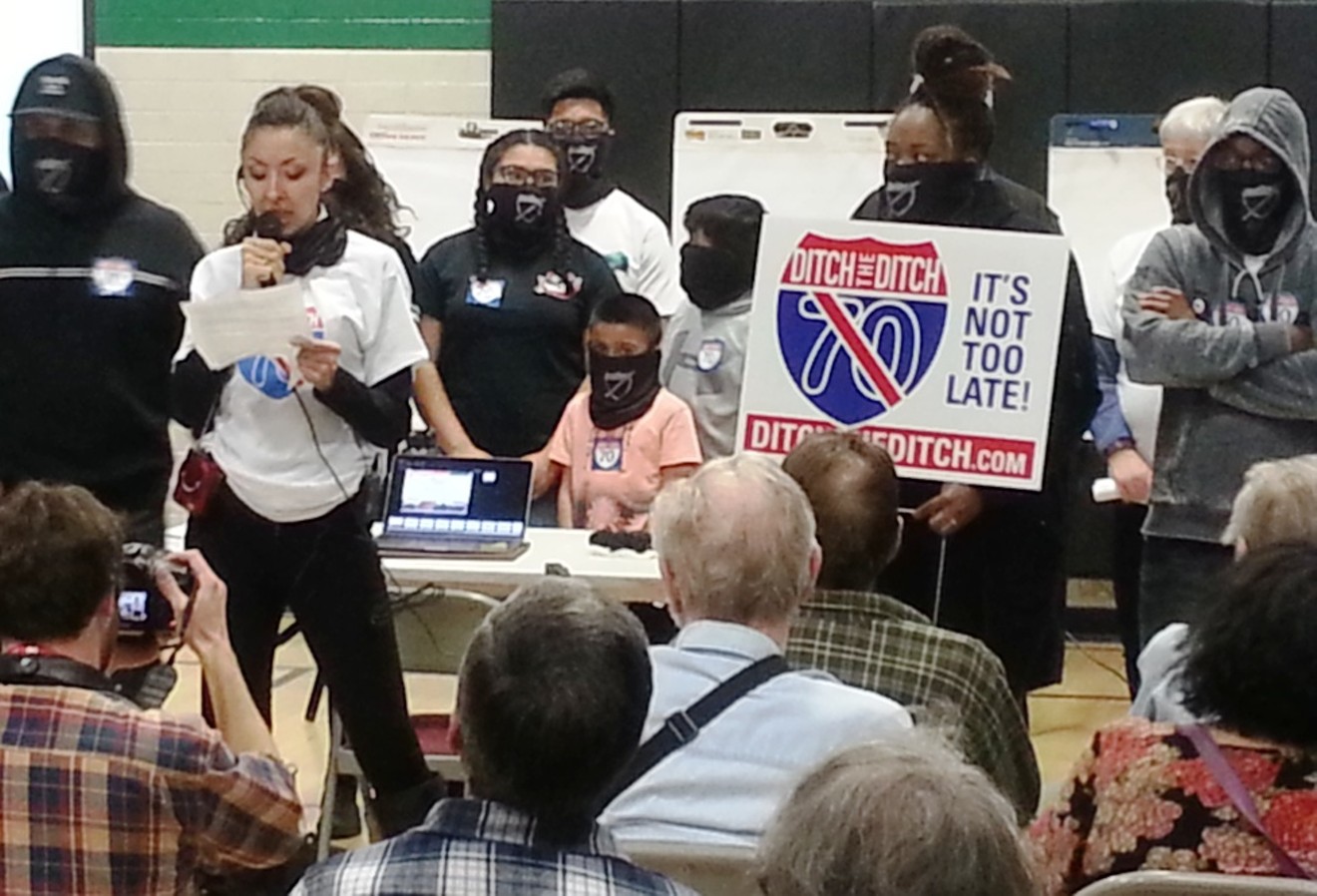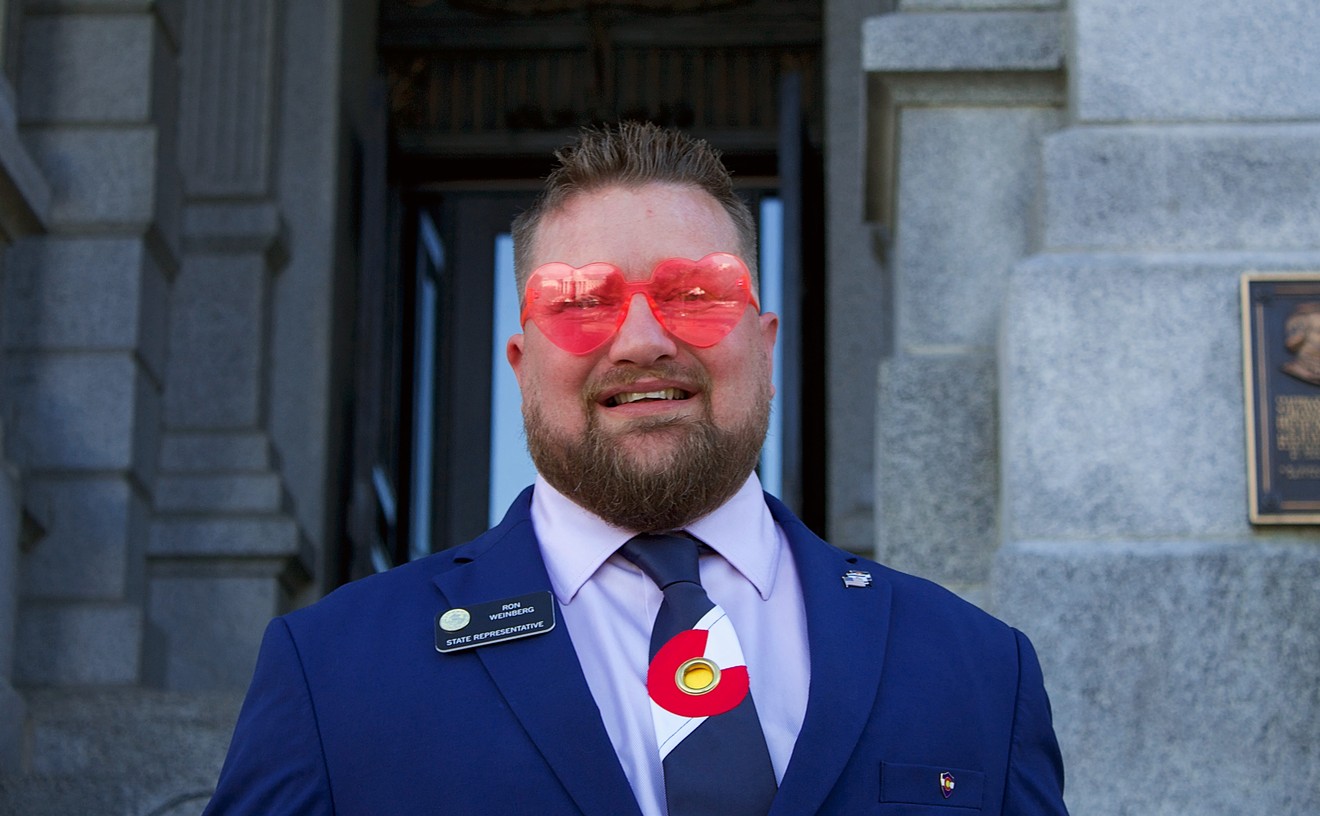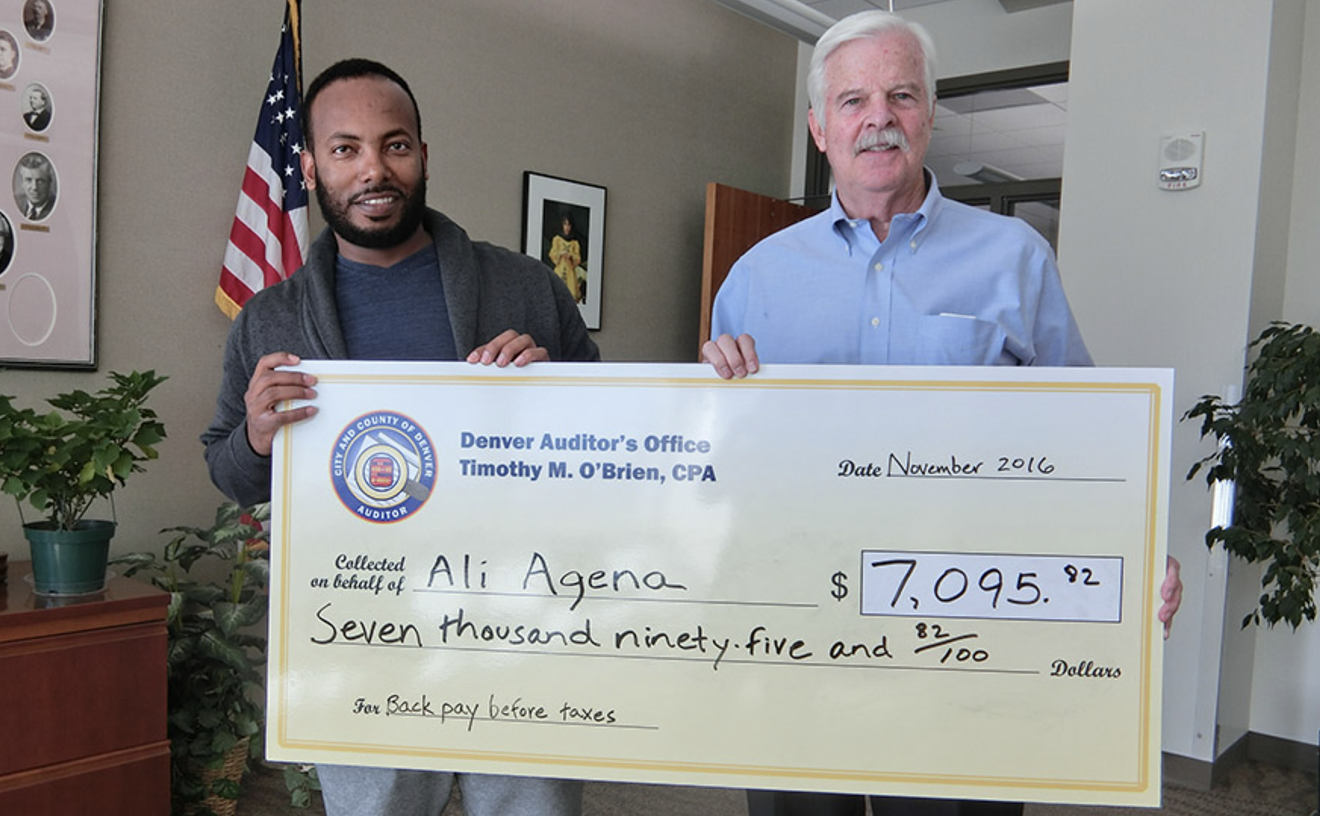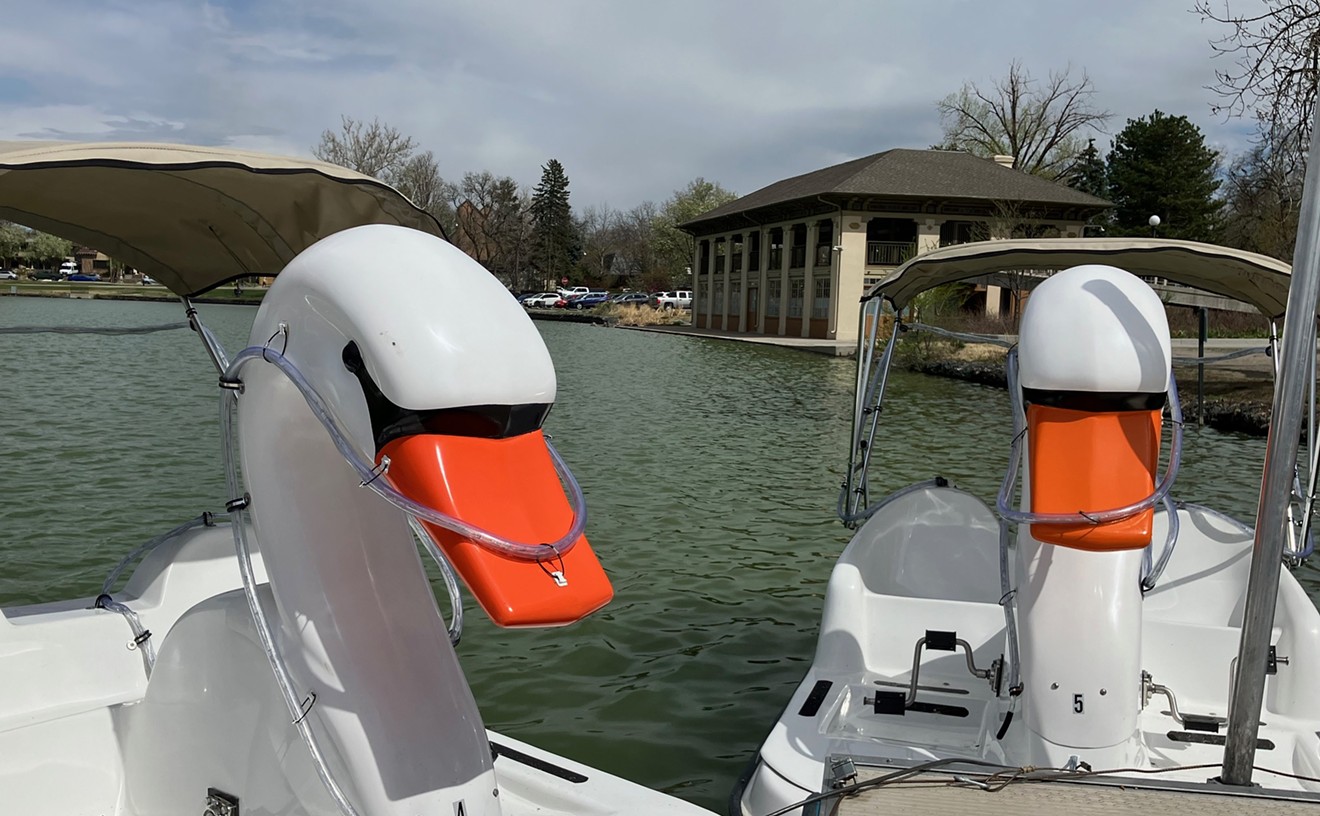"How can you justify poisoning people?"
"We're not going away!"
"This isn't about laws. This is about morals!"
Plans by Colorado Department of Transportation officials to make a formal presentation on I-70 expansion plans at a community meeting on Thursday, February 16, quickly fell by the wayside as opponents crowded into the Swansea Recreation Center to make their own case for the project to be stopped or re-routed. The encounter quickly turned into a question-and-answer-and-boo session, with CDOT executive director Shailen Bhatt insisting, amid a barrage of interruptions and jeers, that the agency will move forward with the $1.2 billion construction unless it's stopped by a court order.
The long-delayed rebuild, which recently received a green light from the Federal Highway Administration, focuses on a congested stretch of I-70 between I-25 and Chambers Road. It would replace a crumbling six-lane viaduct with a below-grade, partially covered superhighway expanded to ten lanes; officials say that a four-acre "lid" of greenery on top of the highway as it moves through the Elyria and Swansea neighborhoods would help reunite communities that were disrupted by the viaduct construction in the 1960s.
But some local residents believe that the project will only create further disruption and environmental hazards in what is already one of the city's poorest areas (and reputedly the most polluted zip code in the country). The public-interest group COPIRG has denounced the expansion as a boondoggle. The Sierra Club has joined with community groups in north Denver to file a federal lawsuit against the EPA, claiming that the agency lowered its pollution standards in order to push forward the expansion. Other groups have complained that the project disproportionately impacts predominantly Hispanic communities, or are fighting a massive drainage project in Denver that will benefit the expansion but will also have less-than-ideal impacts on neighborhoods well beyond the I-70 corridor.
The opponents have urged that the highway be rerouted to the north, which they claim would have less impact on residential areas and could be done for less cost while transforming the existing highway section into a grand boulevard. They contend that highway officials never seriously explored such an alternative. CDOT, however, insists that a reroute isn't economically feasible; shortly before the meeting, the agency unveiled a video on its Facebook page rebutting the idea, contending that such a plan would cost $3 billion and still leave intense truck traffic through northeast Denver that would transform the proposed boulevard into "Colorado Boulevard on steroids." The video also came with an open letter from Bhatt contending that the hard-core advocates of a re-route amount to "a small group of about 60-70 people."
That assertion brought a strong response from protesters at the meeting, who say they represent many longtime residents of the area. (CDOT spokeswoman Rebecca White later clarified Bhatt's characterization: "They are a relatively small group compared to the hundreds of thousands of drivers who depend on I-70 every day or the more than 1,000 businesses located along the interstate.") Several wore black bandannas over the mouths emblazoned with the "Ditch the Ditch" emblem — which, despite its resemblance to Oakland Raiders gear, actually symbolized concerns about air quality in the construction zone. They continued to push the reroute idea, a concept that Bhatt maintained isn't an option.
"I'm not here to tell you that we're moving the road," he said. "That's not what we're here to discuss."
He added that CDOT had met all the legal requirements involved in its fourteen-year process of trying to fix the viaduct, which he described as "the worst bridge in our inventory." As the commenters kept circling around the idea of a reroute, Bhatt also dug in, suggesting that lawsuits would resolve the issue: "If we got this wrong and you're right, then we'll do something else."
That brought another retort from one of Bhatt's more persistent hecklers: "'So sue us?' Is that the relationship now between government and the people?"
Here's the CDOT video outlining problems with the proposed rerouting of the highway.
[
{
"name": "Air - MediumRectangle - Inline Content - Mobile Display Size",
"component": "12017618",
"insertPoint": "2",
"requiredCountToDisplay": "2"
},{
"name": "Editor Picks",
"component": "17242653",
"insertPoint": "4",
"requiredCountToDisplay": "1"
},{
"name": "Inline Links",
"component": "18838239",
"insertPoint": "8th",
"startingPoint": 8,
"requiredCountToDisplay": "7",
"maxInsertions": 25
},{
"name": "Air - MediumRectangle - Combo - Inline Content",
"component": "17261320",
"insertPoint": "8th",
"startingPoint": 8,
"requiredCountToDisplay": "7",
"maxInsertions": 25
},{
"name": "Inline Links",
"component": "18838239",
"insertPoint": "8th",
"startingPoint": 12,
"requiredCountToDisplay": "11",
"maxInsertions": 25
},{
"name": "Air - Leaderboard Tower - Combo - Inline Content",
"component": "17261321",
"insertPoint": "8th",
"startingPoint": 12,
"requiredCountToDisplay": "11",
"maxInsertions": 25
}
]












